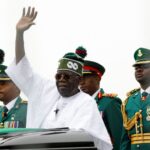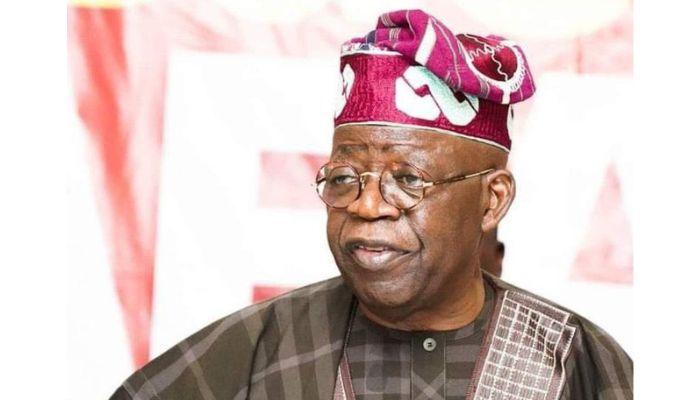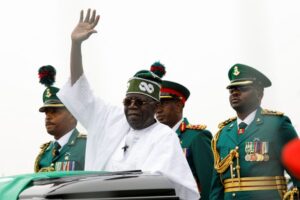…Increase the current 7% budget to 20%, with clear accountabilities on result delivery
By Joy Agbodo-
THE Federal Government has repeatedly said that the goals of the Nigerian education system, is to build a free and democratic society; a just and egalitarian society, a united, strong and self-reliant nation as well as a great and dynamic economy.
The former Minister of Education, Mallam Adamu Adamu, who drew more attention to this in Abuja recently, noted that the Federal Government was working hard towards achieving the 2030 Education Agenda. With the onset of the new government, led by President Bola Ahmed Tinubu, it can be said that the Education goals of the Federal Government have not changed, and the vision 2030 objectives remain the same.
Drawing some key points from the Buhari led administration, former vice President Yemi Osinbanjo, stated at the time of the United Nations led evaluation visit to the Presidential villa in August 2022, that Nigeria must raise education funding to 20% to achieve 2030 SDG target, according to the United Nations standard.
In his address at the ‘Reports of the Independent Country Evaluation of SDGs-3 and 4 in Nigeria’ visit, he said that building the commitment and incentives necessary to prioritise and increase Basic Educational financing up to 12% at all levels was crucial. He said: “The timing of the use of appropriated funds is also important. State government should take advantage of the UBEC matching grants by making the required contributions”.
He added that “Educational stakeholders are encouraged to develop and strengthen coordination mechanisms that can help tighten the collaboration with information sharing between federal and the state on one hand, and non-state actors on the other hand”. As part of the Education agenda for the new administration, Osinbajo’s assurance that the federal government will continue to promote strong partnerships and facilities amongst ministries, departments and agencies, and between development departments also, for coordinated implementation for SDGs in Nigeria, is emphasised for continuous appropriate implementation.
Still in the same line of thought, the United Nations (UN) Humanitarian Coordinator in Nigeria, Matthias Schmale, warned that Nigeria might not achieve the global agenda for universal inclusive and equitable basic education for all school-age children by 2030, if the current 7% budget for education was not upped to 20%, with clear accountabilities on delivery.
Schmale said Nigeria is the first country to conduct and deliver independent comprehensive evaluations of SDG-3 and SDG-4, and that the reports showed how quickly the government had established robust institutional monitoring and support frameworks at the national and sub-national levels to support effective SDG implementation across the country.
With these supportive frameworks, the former Minister for Education, Mallam Adamu Adamu has added that the philosophy of Nigeria is targetted at the development of the individual into a sound and effective citizen, the full integration of the individual into the community, and the provision of equal access to educational opportunities for all citizens. He, however, lamented that these goals had been threatened by the growing insecurity, where school children and teachers were being kidnapped for ransom, saying that to achieve all of these, a secure, peaceful and safe environment is absolutely necessary.
The Minister has reiterated that the Education system of any country is too strategic and sensitive to be treated with levity, adding that it is the fulcrum on which national development hinges and teachers play an important role towards the attainment of the national goals, hence, the need to motivate and improve the quality of their lives.
The President, Universal Learn Direct Academia (ULDA), Chief Olawumi Gasper believes that the country has failed to catch the education fever, with a dismal obsession for the development of education. He expressed concern that Nigeria, a resource rich nation, is ranked among the lowest in global education, with a poor performance in reading literacy, mathematics and science, adding that 10.5 million of the country’s children aged five to 14 years are not in school, despite the fact that primary education is officially free and compulsory.
He described the issue of public schools in the country in the past 60 years as a mixed grill, which witnessed a lot of good in the 60s, 70s and mid-80s, but thereafter up to this period, has witnessed a decline.
Despite all the glaring contributions of Technical and Vocational education to industrial development, innovations, youth employment, self-reliance, entrepreneurial development and economic growth of the country, he said Nigeria in the past 60 years, is yet to accord Technical, Vocational Education, TVE the full attention it deserves. This he said is one of the major reasons for the rising unemployment, poverty and unabated crimes in the society today.
He added that “Investment in TVET and youth skills training must be accorded priority attention since no country can favourably compete in the emerging global market place with non-competitive and poorly skilled workforce. He however commended the fact that the latter part of the past 60 years has witnessed an improved investment in the higher education sector through intervention agencies like TETfund.
As Stakeholders in the sector have applauded the efforts of the TETFund in not only infrastructure development and capacity building of the teaching faculty, but also stimulating research and development, especially local contents development through recent support to research, the new administration should also take up this challenge while expressing hope that the efforts will be the cornerstone to innovations and product development and the opportunity to reposition Nigeria as an industrial country with less dependence on importation.
In his submission, the Chairman, Lagos State Universal Basic Education Board (LSUBEB), Wahab Alawiye-King said educational development in Nigeria has had a chequered history from poor educational system to incremental development and transformation, and commended some of the optimal investments in the sector in the last half century.
“The investment in technology and digitalisation by some states are well acknowledged and commendable. For instance, digital learning and online classes are gradually taking centre stage and have completely transformed the interaction of stakeholders even despite the pandemic. Similarly, we must commend the realisation of the right to universal basic education up to basic 9, remains a landmark achievement and efforts by the government to improve facilities and provisions are worthy also of commendation.”
He regretted the myriads of problems such as poor funding leading to poor educational infrastructures, inadequate classrooms, teaching aids (projectors, computers, laboratories and libraries), paucity of quality teachers and poor/polluted learning environment, being faced by the sector.
This is why for the Tinubu’s administration, it is fully noted that for meaningful development to take place in the Education sector, there is the need for the Government to re-address the issue of funding. This is adding the fact that private investors, teachers, parents/guidance and students need reorientation towards achieving the goals of Education.
In this light, the Tinubu Government should also note that Education must be made affordable for all and sundry if the 2030 vision will be realised. The current monolistic approach to knowledge acquisition has to be changed. Technical Education and innovation/adaptation centres must be encouraged and well funded if this nation must move out of this present technological and scientific dependence.
Government and the organised private sector must as well fund research programmes, inventions and mass production of invented products. There is the need for the Government to have a developmental goal and agenda aimed at solving social problems and economic development through Educational partnerships and collaborative investments in Educational institutions.
The Anambra State Commisioner for Information and Public Enlightenment, Mr. Don Adinuba highlighted some of the state’s achievements in the area of education recently, which include recording the highest rate of success in NECO and SSCE, among others, while advising other states to learn from it.
He expressed concern that Higher Education in the country seems to be in a deep mess and not competitive at all, saying that there is need for the establishment of dual degree programmes, a standard practice in Europe and Asia when a faculty of a university in Nigeria will partner another university in Europe to run a joint curriculum in a particular field.
According to him, “Africa needs it more than any other region in the world. It is an effective way of getting first class education. For instance, a university in Nigeria could reach an agreement to run a joint curriculum with Cambridge University or University College, London in fields such as Engineering, Music or Literature. It means the curriculum of the Nigerian university must be overhauled to meet a high standard and at the end, they award a degree jointly. Our curriculum must be up to date,” he stressed.
These key areas discussed stresses the need for a wholistic system of support that enables a healthy development in the education sector. This is as the different areas witness a continuous transition and upgrading in response to the dynamic students’ needs, which includes the academic, health and social support that provides the needed resources, within and beyond the classroom.








More Stories
IGP orders investigation into killing of 14-yr-old WAEC candidate
Shadow cabinet: Court orders substituted service on Utomi
Man claims infidelity as reason for setting wife, three children ablaze